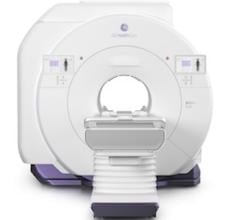
April 30, 2015 — The American College of Radiology (ACR) announced its support for the Diagnostic Imaging Services Access Protection Act (H.R. 2043) which seeks to prospectively repeal the existing 25 percent Multiple Procedure Payment Reduction (MPPR) applied to Medicare reimbursement. The MPPR is applied for interpretation of advanced diagnostic imaging scans performed on the same patient, in the same session, on the same day.
H.R. 2043 was recently introduced into the United States House of Representatives by Reps. Pete Olson (R-TX), Peter Roskam (R-IL) and Betty McCollum (D-MN). This bipartisan legislation mirrors S.1020 introduced the week before by Sens. David Vitter (R-LA) and Ben Cardin (D-MD).
According to ACR, the Secretary of Health and Human Services (HHS) continues to ignore a mandate in the Protecting Access to Medicare Act (PAMA) of 2014 (Public Law 113-93) to release data claimed to support enactment of the initial Medicare professional component MPPR in 2012. The HHS Secretary has had over 12 months to comply with this request and, to date, still has not released the data.
“This Medicare cut affects care for the most sick or injured patients — including auto accident victims and those with stroke or widespread cancer — who often require interpretations by different doctors to recover. The Centers for Medicare & Medicaid Services (CMS) should not be slashing funding for care for the most vulnerable of Medicare patients. We thank Reps. Olson, Roskam and McCollum for trying to fix a problem that CMS never should have created,” said Bibb Allen Jr., M.D., FACR, chair of the American College of Radiology Board of Chancellors.
The MPPR implemented by the CMS has little to no impact on the number of scans ordered. Radiologists rarely order exams, but perform those ordered by other providers. A 2012 study shows that any efficiencies in physician interpretation and diagnosis when the same patient is provided multiple services on the same day are variable and, at most, one-tenth of what policy makers contend.
Imaging cuts are unnecessary and may cause more harm than good. Medicare imaging use and costs are down significantly since 2007. Medicare spending on scans today is the same as in 2003. Provisions to curb imaging volume were contained in the ACR-backed Protecting Access to Medicare Act of 2014 which, among other things, will require providers to consult appropriateness criteria when ordering advanced imaging scans for Medicare patients.
Such electronic health record-compatible ordering systems tell providers, in real time, whether the scan to be ordered is recommended by current medical guidelines — or whether no scan is warranted — without delaying care. The Institute for Clinical Systems Improvement and Partners Healthcare in Boston have shown that these clinical decision support tools significantly reduce unnecessary imaging and costs, while ensuring that patients get the right scan for their condition at the right time.
“Rather than employing arbitrary cuts inconsistent with resource-based reimbursement, the Centers for Medicare and Medicaid Services should focus on properly implementing the imaging appropriateness criteria policy enacted by Congress. This is a far better method of ensuring that only appropriate scans are performed without threatening access to care,” said Allen.
For more information: www.acr.org


 February 20, 2026
February 20, 2026 









